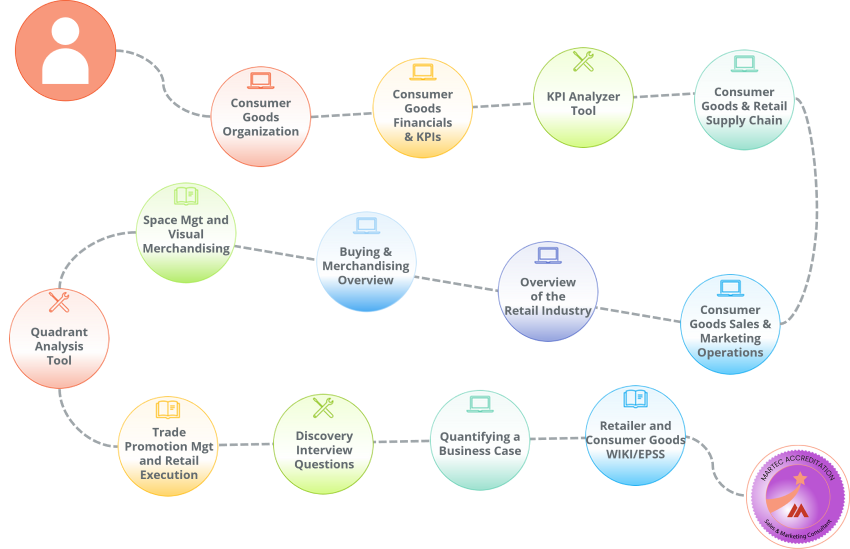Sales and Marketing Consultant
Consumer Goods Consultant - Sales and Marketing Learning Path
This learning path is for consultants, project managers and business analysts who work on implementation projects for clients and need a deeper knowledge of the sales and marketing processes in consumer goods manufacturing. It assumes that learners have completed the consumer goods industry induction learning path or have equivalent knowledge from past projects.
Select any of the circles along the path to find out more about each step.

The Skills You Learn
By studying this learning path, consultants will gain these skills:
- Recognize the scope of and identify the needs of the various job roles in the consumer goods (CG) sales and marketing organization.
- Analyze financial statements and identify ways to grow sales, improve achieved gross margins, reduce sales and marketing expenses, improve trade promotion management and exploit added value services for retail customers.
- Analyze sales and marketing KPIs to identify where performance can be improved against competitors, peer groups and historical trends.
- Identify potential supply chain opportunities to improve company performance, market share and consumer satisfaction, through things like improved demand forecasting, better product assortments, trade promotion execution, etc.
- Identify opportunities to optimize channel performance including a direct to consumer channel, use of brokers, wholesalers, field merchandising teams and inside sales teams.
- Understand the needs of different retail segments and the key buying, merchandising and inventory management processes retailers use, and identify ways to improve efficiency through more effective integration with retail processes.
- Analyze and optimize selling space productivity (including online page space) and shelf space productivity.
- Use quadrant analysis tools to identify the key IT systems in retailers and CG companies needed to support identified performance improvements.
- Quantify potential improvements and their associated implementation costs to produce a robust return on investment analysis.
